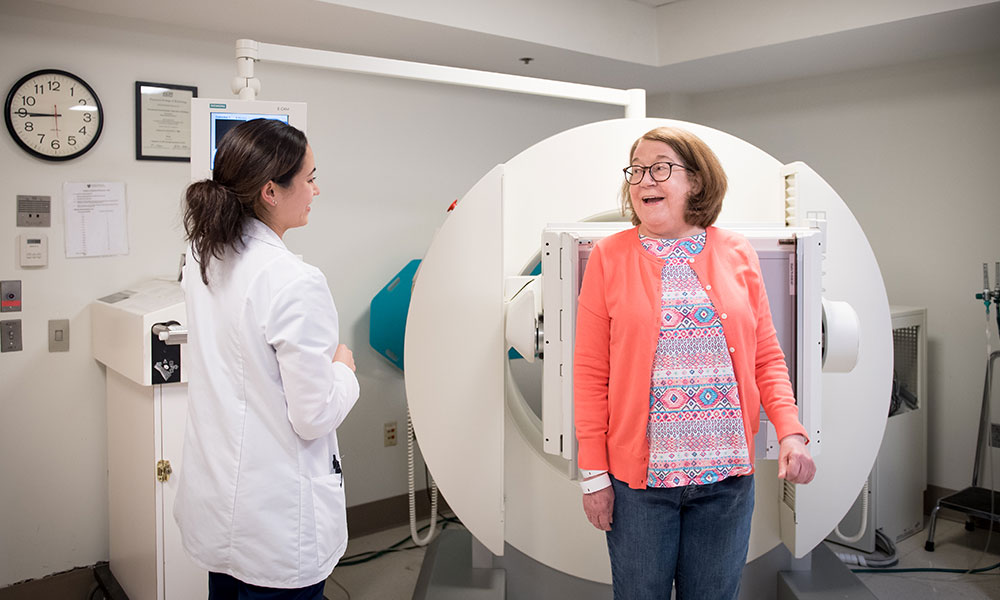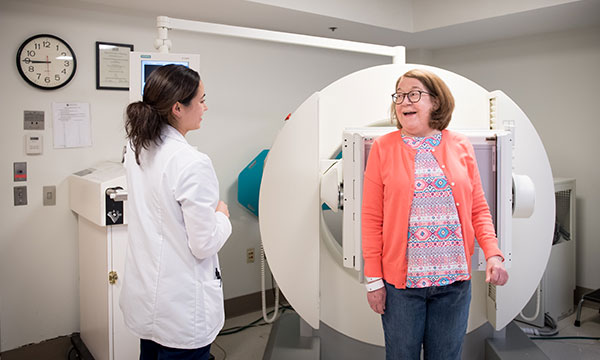Nuclear Medicine Scan
Mass General Imaging offers nuclear medicine scans at Mass General in Boston.


Contact Information
Nuclear medicine scans are available in Boston.
What is a Nuclear Medicine Scan?
Nuclear medicine is a field of medical imaging that uses small amounts of radioactive tracer to diagnose a wide range of disease.A nuclear medicine scan is used to study the structure and function of an organ, tissue, bone or system of the body. A nuclear medicine scan can detect and monitor many types of cancer. It uses imaging to see how your body absorbs and processes the tracer. We usually inject the tracer into your vein or ask you to swallow it by mouth or breathe it in as a gas depending on your type of scan.
A Note About Tracers
We use the lowest dose of radioactive tracer to get the highest quality images. Radiation exposure during a nuclear medicine scan is minimal. We limit exposure by carefully tailoring the dose to each patient. After the scan, the tracer loses its radioactivity, usually within 24 hours, and passes out of your body naturally.How to Prepare for a Nuclear Medicine Scan
A nuclear medicine scan can take as little as 2 hours. But some scans require you to leave and come back later in the day or even over several days. You will get more information when your exam is scheduled.- When to Arrive - Please arrive 30 minutes before your appointment
- Eating and Drinking - You can eat and drink normally before most nuclear medicine scans. But you need to fast for some exams. You will get specific instructions before your appointment.
- Medications - Please bring a list of medications and known allergies to your appointment.
- Pregnant or Breastfeeding - Please let us know before your appointment.
- Clothing - You can wear your own clothes during the exam. Please avoid metal clasps or zippers. Metal can blur the images.
- Valuables - Please leave your valuables at home.
Division of Nuclear Medicine and Molecular Imaging
The Division of Nuclear Medicine and Molecular Imaging performs our nuclear medicine scans. Every scan is read by a radiologist who is specially trained in nuclear medicine and dedicated to the part of the body being studied.
Get Your Imaging Results
After your imaging exam, a radiologist sends a report to your doctor. Most results are in Patient Gateway.
Refer A Patient to Mass General Imaging
Are you a provider who wants to refer a patient to Mass General Imaging? Call our Central Scheduling Office between 7:30 am and 5:30 pm, Monday through Friday. Or order online.
